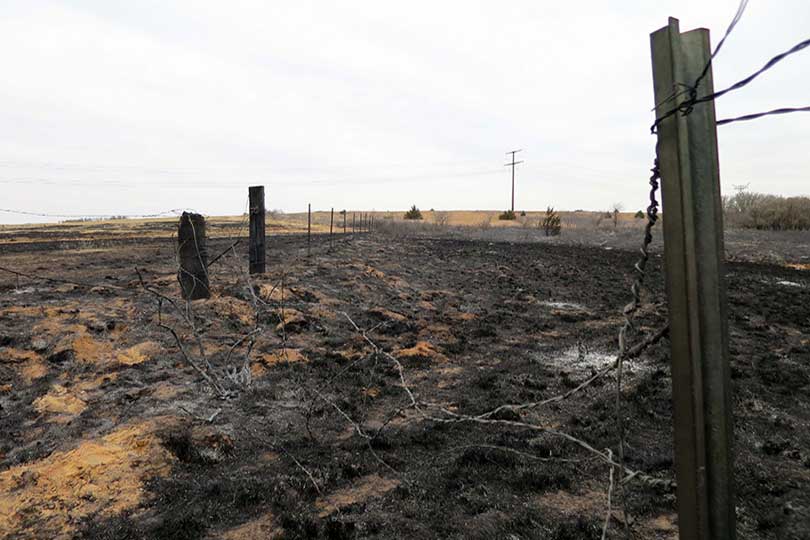The U.S. Department of Agriculture (USDA) Natural Resources Conservation Service (NRCS) in Texas is offering financial assistance to farmers and ranchers who have been impacted by recent wildfires, including animal mortality assistance, deferred grazing and more.
“NRCS in Texas is prepared to assist landowners with their efforts to address wind and water erosion, livestock production limitation, degraded plant condition, and other resource concerns caused by the recent wildfires,” Kristy Oates, NRCS state conservationist in Texas, said. “Loss of vegetation not only affects forages for livestock and wildlife habitat, but it can lead to increased soil loss due to erosion by wind and water.”
Currently, eligible counties in Texas include Blanco, Brooks, Brown, Coleman, Comanche, Eastland, Erath, Grayson, Hood, Mason, Potter, Randall, Runnels, Starr and Williamson. As more wildlife disaster proclamations occur, those counties will also be eligible.
Funding is available through the Environmental Quality Incentive Program (EQIP), which provides financial and technical assistance to farmers and ranchers to address natural resource concerns and deliver environmental benefits. Professional resource conservationists with the NRCS can visit with landowners about practices such as grazing deferment, cross fencing, reseeding and water development that are effective post-fire strategies to help reduce erosion.
NRCS accepts applications for conservation programs year-round, however, producers and landowners should apply by July 5, 2022 to be considered for this year’s funding. Applications for this enrollment opportunity will be selected for funding by Aug. 5, 2022. NRCS is allowing early start waivers and a shorter enrollment period.
Eligible farmers and ranchers can use the funds to implement eligible practices including fencing, watering facility, range planting, livestock pipeline and more. To apply for EQIP assistance, and for further assistance in evaluating your land and planning practices to address concerns following a wildfire, landowners and managers should contact their local USDA Service Center.

